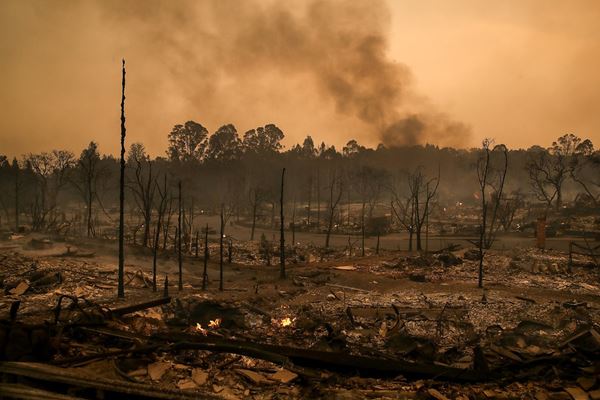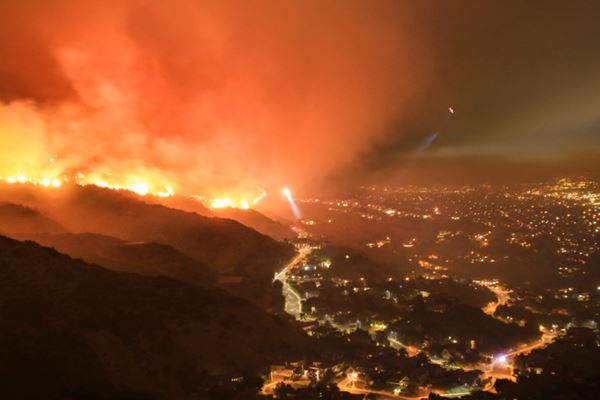Taking the Complexity out of Complex Losses

Complex loss incidents require thorough and detailed investigations. As the name implies, “complex” or “major” losses require experts and litigation professionals with the knowledge and experience to efficiently complete the investigation and claim or dispute resolution. The time to identify the best individuals to assist with your claim is not after the incident has occurred; having your team in place as soon as possible following a loss is instrumental to ensuring a swift and smooth response to any investigation.
Immediate Response
It is essential for experts to respond to a loss as quickly as possible. Property owners and other stakeholders involved in major losses may mistakenly think that if the public emergency services are still on scene, very little can be completed by an investigator assisting a carrier or outside entity. However, this is untrue. There are numerous tasks an expert can and should complete immediately following a loss occurring. For instance:
- Establishing what public jurisdiction has control of the scene and who will be completing their investigation
- Identifying witnesses and conducting initial interviews
- Photographing the accessible areas of the scene and firefighter activities that could possibly alter the scene or origin location
- Compiling a list of parties who will be involved in the investigation
- Assessing special or heavy equipment that may be needed for the scene examination
- Finding out who the carrier/client for the entity in control of the subject property is, if it is not you, and discussing how the scene will be secured
- Reviewing budget for the initial work and discussing the potential for additional exams as well as additional experts that might be needed
Communication is vital and will be continuous throughout the process. Decisions need to be made and communicated early on about how information will be transmitted due to confidentiality, privilege, and mitigation of incorrect/incomplete information. Litigation counsel is extremely helpful in an investigation with the ability to navigate spoilation questions as well as liability implications.
Scene preservation should be addressed while the public agencies still have control to allow a seamless transition, not only in safety but in controlling access to the property. Many times, this involves fencing and on-site security. Placarding or signage can also be incredibly helpful for other parties, who may visit the site days after the incident, to determine which entity has control of the property and how to make contact. Improper securing of a scene or cutting corners to save money have proven detrimental to origin and cause investigations.
Diving into the Scene
The entity in control is responsible for the continued coordination and communication regarding the scene examination. The following guidelines can alleviate delays or disagreements that often arise when trying to secure and examine a scene:
- Establish joint scene protocols prior to the inspection so all involved parties are aware of and involved with expectations on-scene examination and collection of evidence/artifacts
- Narrow down the exam area, document, and communicate to other parties on how this area was determined
- Discuss any possible or requested cost-sharing for equipment, lab exams, or other expenses
- Share documentation or data that can save time from duplication of work or requests
- Address proper personal protective equipment or training to ensure all parties are aware of what will be required upon their arrival
Scene work can proceed once all parties agree to a date and protocols. Thereafter, the initial findings will determine the course of action In some cases, the scene will be released after the first site exam, while other cases will require additional scene exams and often off-site exams in a lab setting.
Evidence and Further Examinations
Collection of scene evidence should be addressed prior to the initial examination. Items collected from the scene can consist of evidence or artifacts that can be addressed later in regard to their value in determining cause. The proper packaging and transportation of these items can be a challenge depending on the location of the loss, size of the item, and location of storage. Such factors can become extremely costly and need to be discussed with your experts and litigation counsel on a regular basis to help mitigate any budgetary surprises or rule out the need to collect some items before the cost is incurred.
Complex losses can spiral out of control quickly if not handled by experts using a collaborative approach. Too often, the overall goal of determining the cause is clouded by the confusion of missing guidance by subject matter experts in scene security, protocols, and evidence collection. Being comfortable with the experts involved in the investigation allows you to focus on your portion of the claim while knowing the investigation outcome is as complete and scientifically sound as possible. The correct expert team can take the complexity out of complex losses.
Our experts are ready to help.




